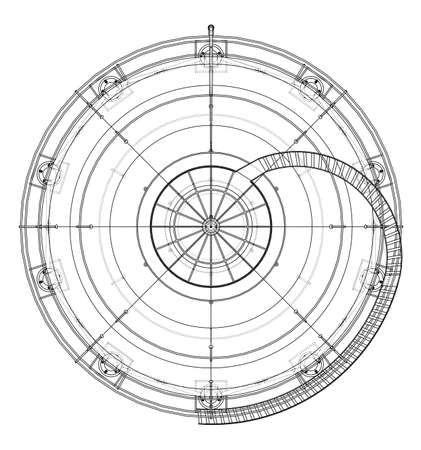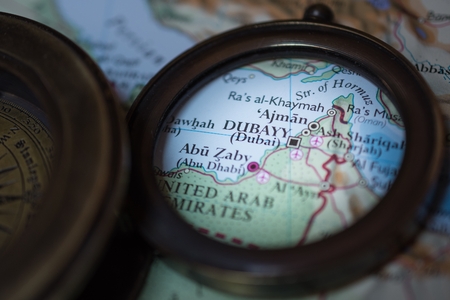Introduction to Birth Charts in British Astrology
Across the rolling hills and historic streets of Britain, astrology has long held a quietly enchanting presence. While many may associate star-gazing with ancient civilisations or distant cultures, the roots of astrological practice run deep within British soil. In the heart of the United Kingdom, from the scholarly halls of Oxford to the bustling markets of London, birth charts—or natal charts—have woven their subtle magic through centuries of history. This intricate map of the sky at the moment of one’s birth is far more than a mystical curiosity; it serves as a cosmic mirror reflecting both individual character and life’s unfolding journey.
In recent years, there has been a marked resurgence of interest in astrology among Britons. No longer confined to cryptic newspaper columns or whimsical party games, birth charts are experiencing a renaissance as modern seekers look for meaning amid uncertainty. The allure lies not only in their personal insights but also in their ability to connect people with a heritage that is at once timeless and distinctively British. Whether discussed over tea in a cosy Cotswolds café or explored digitally through apps and online readings, birth charts have become an accessible and valued tool for self-discovery. This guide invites you to step into the rich tapestry of British astrology, where tradition meets contemporary curiosity and every star tells a story uniquely your own.
2. Decoding Celestial Blueprints: The Essential Components
At the heart of every birth chart lie three luminous anchors: the Sun, Moon, and Rising signs. These cosmic touchstones serve as the blueprint for our personalities, influencing not only how we perceive ourselves but also how we are perceived by the world—particularly within the nuanced fabric of British society.
The Big Three: An Astrological Trinity
Let’s gently unravel these essential components and explore their roles, both astrologically and through a distinctly British perspective:
| Component | Astrological Meaning | British Cultural Lens |
|---|---|---|
| Sun Sign | Your core identity, ego, and vitality; the centre of your being. | The “stiff upper lip” or underlying character that persists, even when faced with a drizzle or an awkward queue. |
| Moon Sign | Your emotional self, instincts, and inner world; what soothes or unsettles you. | The quiet resilience found in a cup of tea after a long day; those private feelings hidden beneath polite conversation. |
| Rising Sign (Ascendant) | The mask you wear; your social persona and initial impression on others. | The friendly nod to a stranger at the bus stop; your chosen wardrobe for navigating Britain’s ever-changing weather. |
The Interplay of Sun, Moon, and Rising in British Life
When woven together, these three signs offer a nuanced portrait. For example, someone with a Leo Sun (confident), Cancer Moon (sensitive), and Virgo Rising (modest) might be outwardly reserved yet quietly proud—a combination often admired in British culture for its balance between humility and quiet self-assurance.
Navigating British Identity Through Astrology
In Britain, where subtlety is valued as much as substance, understanding the interplay between these celestial components helps us appreciate the unique blend of reserve and warmth that so often defines personal expression here. Your Sun may drive you forward, your Moon reveals what comforts you most on a rainy afternoon, and your Rising sign frames how you greet both friends and strangers—with classic British grace.

3. Houses and Life Spheres: British Perspectives on Everyday Influences
Within the intricate map of a birth chart, the twelve astrological houses serve as portals into various spheres of life—each one echoing through the daily rhythms of British culture. These houses do more than simply partition the sky; they provide a lens to examine how cosmic energies play out in familiar contexts, from cherished heritage homes to longstanding local customs.
The First House: Identity at the Doorstep
The first house, often called the Ascendant, represents self-expression and physical presence. In Britain, where personal presentation and a sense of reserve are culturally prized, this house highlights the subtle interplay between individuality and societal expectation—much like choosing the right coat before stepping out into a brisk London morning.
The Fourth House: Heritage and Home
Few things resonate more deeply in British life than the concept of home. The fourth house governs our roots and domestic sphere, reflecting not just our family ties but also our connection to place. Whether it’s a Georgian townhouse in Bath or a cosy cottage in the Lake District, this house speaks to one’s private sanctuary and ancestral legacy—a motif woven through British storytelling and tradition.
The Seventh House: Partnerships Over Tea
Relationships take centre stage within the seventh house. In Britain, forming partnerships—be they romantic or business—often unfolds over shared rituals such as afternoon tea or pub gatherings. This house reminds us that alliances are built upon both etiquette and heartfelt connection, blending social custom with genuine intimacy.
The Tenth House: Public Life and Reputation
Ambitions and public standing fall under the tenth house. For many Britons, career achievements are celebrated with quiet pride rather than flamboyance. This house illustrates how ones contribution to society is measured—not only by professional titles but also by upholding values like integrity, perseverance, and a commitment to community service.
Everyday Traditions and Cosmic Threads
Each astrological house weaves its own subtle thread through daily life in Britain. From annual village fêtes (fifth house creativity) to charitable initiatives (eleventh house collective action), these spheres capture both individual journeys and shared cultural moments. By observing how planetary placements activate these houses in our charts, we gain gentle insight into how the heavens shape everything from morning routines to lifelong aspirations—always with a distinctively British sense of grace and continuity.
4. The Influence of Planets: Quintessential British Archetypes
The planets in astrology are more than celestial bodies; they serve as vivid archetypes, each carrying unique energies that weave through every birth chart. To truly understand these planetary influences, let’s immerse ourselves in their symbolism using familiar British cultural figures and traits, making the cosmic tapestry feel right at home.
Mercury: The Articulate Messenger
Mercury embodies communication, wit, and adaptability—the quintessential qualities of a sharp BBC news presenter or the eloquence of Sir David Attenborough. In your birth chart, Mercurys placement reveals how you process information and express yourself, perhaps with that classic British penchant for dry humour or understated charm.
Venus: The Patron of Harmony
Venus radiates beauty, love, and sociability, much like the grace of Dame Judi Dench or the unruffled camaraderie seen at a traditional afternoon tea. Venus in your chart highlights your values in relationships and your appreciation for art, culture, and those small but meaningful acts of kindness so central to British etiquette.
Mars: The Stalwart Defender
Mars symbolises action, drive, and courage—think Sir Winston Churchill’s steadfast resolve during trying times. Mars’ position in your chart speaks to how you assert yourself, your passions, and your approach to overcoming obstacles—often with that “Keep Calm and Carry On” spirit.
British Archetypes and Planetary Energies
| Planet | Symbolic Energy | British Archetype | Common Traits |
|---|---|---|---|
| Sun | Identity & Vitality | The Royal Monarch (e.g., Queen Elizabeth II) | Dignity, Leadership, Composure |
| Moon | Emotions & Nurturing | The Caring Matron (e.g., Mary Berry) | Sensitivity, Warmth, Intuition |
| Mercury | Communication & Thought | The BBC Presenter (e.g., Sir David Attenborough) | Eloquence, Wit, Curiosity |
| Venus | Love & Aesthetics | The Afternoon Tea Hostess (e.g., Dame Judi Dench) | Tactfulness, Sociability, Grace |
| Mars | Action & Drive | The Wartime Leader (e.g., Sir Winston Churchill) | Courage, Determination, Resilience |
| Jupiter | Growth & Optimism | The Oxford Scholar (e.g., Stephen Fry) | Wisdom, Generosity, Good Humour |
| Saturn | Discipline & Structure | The Stoic Headmaster (e.g., Professor McGonagall) | Pragmatism, Duty, Endurance |
| Uranus | Innovation & Change | The Inventor (e.g., Tim Berners-Lee) | Originality, Independence, Eccentricity |
| Neptune | Dreams & Intuition | The Poetic Visionary (e.g., William Wordsworth) | Imagination, Compassion, Escapism |
| Pluto | Transformation & Power | The Social Reformer (e.g., Emmeline Pankhurst) | Intensity, Renewal, Depth of Purpose |
Navigating Your Chart with British Wisdom
By relating planetary energies to celebrated British personalities and familiar traits—from the humour of Stephen Fry to the leadership embodied by Queen Elizabeth II—we gain a gentle yet profound insight into our own astrological make-up. This approach not only illuminates the planets influence but also helps us embrace our quirks and strengths with a uniquely British blend of self-awareness and quiet confidence.
5. Interpreting Aspects: Weaving the British Social Fabric
Within the intricate artistry of a birth chart, planetary aspects form some of the most compelling patterns—lines of connection that echo the closely woven social tapestry found throughout British culture. To understand how these cosmic threads operate is to appreciate how individuals interact within both local communities and the wider society, much as families and friends in Britain gather for Sunday roasts or exchange knowing glances at a village fête.
The Nature of Aspects: Cosmic Conversation
Aspects are angular relationships between planets, revealing how different energies collaborate, clash, or quietly support one another. In the context of British life, think of these aspects as the subtle cues and unspoken agreements that shape interactions—from a polite nod on the high street to heartfelt conversations over a cuppa. Every trine or square echoes the ebb and flow of real-life relationships, where harmony and tension co-exist in delightful complexity.
Major Aspects in Everyday Life
Take, for example, the conjunction—a merging of planetary energies akin to two colleagues joining forces on a project at work, their strengths amplified by mutual understanding. A challenging square may resemble a spirited debate at Question Time, where differences spark growth rather than discord. Sextiles and trines can be likened to those moments when everything falls into place during a family gathering; harmony prevails, conversation flows freely, and support feels effortless.
A Mirror to British Values
Britain’s storied tradition of community—be it the camaraderie of local football clubs or neighbourhood watch schemes—finds its astrological parallel in how aspects connect seemingly disparate parts of one’s chart. Just as British society thrives on cooperation and respectful negotiation, so too does an astrologer seek understanding in these celestial dialogues, interpreting where compromise is needed and where individuality shines through.
Family Bonds and Social Networks
In many ways, aspects map out our personal “inner circle”—who supports us, who challenges us to grow, and where we find comfort or inspiration. This mirrors the importance placed on kinship across Britain’s counties and boroughs: whether gathering around a bonfire on Guy Fawkes Night or rallying together for a community cause, each aspect reflects our role within the collective story.
Ultimately, by exploring planetary aspects through a uniquely British lens, we gain deeper insight into how our own connections—familial or otherwise—are shaped by both tradition and change. The birth chart becomes not just a map of the stars above but a reflection of the social bonds that anchor us here below.
6. Applying Birth Chart Wisdom: British Guidance for Modern Living
Astrology in Britain is more than a whimsical curiosity—it has become an insightful tool for navigating the intricacies of twenty-first-century life. As Britons seek meaning and self-understanding amidst rapid social changes, many turn to their birth charts as guiding maps. These celestial blueprints reveal not just personality quirks but also offer compassionate guidance for personal growth, relationships, and the unique hurdles found within UK culture.
Personal Growth: Embracing Self-Awareness
Across the UK, individuals are weaving astrological insights into their journeys of self-discovery. Your Sun sign may shed light on your core motivations, while your Moon sign whispers about your emotional needs—powerful knowledge when striving to balance ambition with well-being. For many, reflecting on planetary placements offers gentle reminders to honour both strengths and vulnerabilities. In a society that values the classic British “stiff upper lip,” astrology gently encourages embracing sensitivity and authenticity.
Relationships: Navigating Connections with Nuance
The British approach to relationships often blends reserve with warm loyalty. Astrological compatibility—known as synastry—offers nuanced perspectives for understanding partners, friends, or colleagues. By exploring Venus and Mars placements, Britons can demystify romantic patterns or resolve misunderstandings with a touch of cosmic empathy. Astrology serves as a bridge between tradition and modern openness, fostering deeper connection while respecting each individual’s boundaries—a very British balancing act.
Addressing Contemporary Challenges
Life in modern Britain brings its own set of trials—from navigating multicultural workplaces to managing the digital whirlwind. Here, birth chart wisdom becomes a quiet ally. For instance, Mercury’s position might inspire mindful communication in diverse teams, while Saturn’s lessons encourage resilience amid economic uncertainties. Many Britons incorporate daily astrological reflections alongside mindfulness practices or journaling, integrating the ancient art of star mapping with contemporary mental health awareness.
Cultural Sensitivity and Inclusivity
British astrology is evolving to reflect the nation’s rich tapestry of identities and experiences. Practitioners increasingly honour intersectionality—considering how cultural background, gender identity, or neurodiversity shape astrological expression. This thoughtful approach ensures that every birth chart reading feels inclusive and empowering rather than prescriptive or exclusionary.
A Gentle Guide for Everyday Life
Ultimately, the enduring appeal of birth charts in British culture lies in their ability to offer gentle insight without rigid dogma. Whether used quietly over a cup of tea or discussed among friends at a local pub, astrology supports Britons in making sense of themselves and their place in a complex world. It is less about predicting fate and more about nurturing wisdom—the kind that helps one face London drizzle or Cumbrian sunshine with equal grace.

